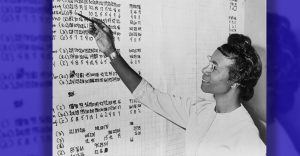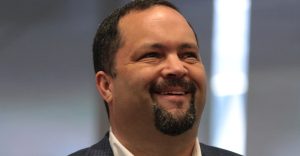Bay Area
Teachers Demand Equal Access to Online Learning

More than 340 teachers — members of the Oakland Education Association (OEA) — joined with parents, students, and other community members this week to send a letter to Oakland Unified School District Supt. Kyla Johnson-Trammell and Oakland Mayor Libby Schaff demanding they take “all necessary measures” to provide Oakland students with access to the internet, according to a press statement.
“We demand that the Oakland Unified School District and the City of Oakland immediately arrange with internet providers to provide free universal internet throughout the city,” according to the teachers’ letter.
Emphasizing the importance for internet access for all students at this time, OEA President Keith Brown said, “There is no equity in education for our most vulnerable students if all Oakland families do not have access to the internet. “In some flatland schools, between 25-50% of our families have little or no access to online classwork.”
Added Patricia Segura, a teacher at Oakland’s Fremont High School, “Nearly a fourth of our Fremont High students do not have access to the internet. This makes distance-learning a problem of equity. It is unfair for students and we need a city-wide solution quickly.”
OEA has launched a social media campaign of #internet4all to raise awareness that during the COVID-19 pandemic, internet access is a human right and must be extended to all families. According to the demand letter, “in the absence of internet for all students, distance-learning is a lie.”
Teachers have learned that a large number of students attending Oakland public schools in East and West Oakland have little or no access to the internet. Now that OUSD has unrolled its “distance learning” program and teachers are expected to conduct online classes, this means that many students in the city’s high-needs communities will have great difficulty accessing their classes and doing this work.
There are reports that attempts by parents to purchase internet services have also failed. According to Judy Greenspan, a teacher at United for Success, a mother of a 7th grader said that she spent over an hour on the phone trying to set-up an account on Comcast, only to be disconnected and told that she had to go online to apply for the service. She eventually found out that the company was not scheduling any more in-home appointments.
“Programs like Xfinity/Comcast and AT&T have long wait times, aren’t taking appointments, require credit cards or other resources that undocumented families cannot provide, or promise one free month of access only to later start charging families for a service they can’t afford. Surely Comcast, AT&T, and other providers can do better by our community,” according to the teachers’ letter.
While the district offers to drop off paper worksheets packets to families without internet access, “paper packets are in no way a substitute for connecting with teachers and resources online, especially since the situation evolves rapidly and will likely continue through the summer and into next school year,” the letter said. “Failing to provide internet access for everyone will only stretch learning gaps.”
To view the letter, go to https://docs.google.com/document/d/1XtQ9yZxFA63HLX83V8xKiorNTSHe79F-jkw4eIW-vD8/edit
Alameda County
Seth Curry Makes Impressive Debut with the Golden State Warriors
Seth looked comfortable in his new uniform, seamlessly fitting into the Warriors’ offensive and defensive system. He finished the night with an impressive 14 points, becoming one of the team’s top scorers for the game. Seth’s points came in a variety of ways – floaters, spot-up three-pointers, mid-range jumpers, and a handful of aggressive drives that kept the Oklahoma City Thunder defense on its heels.

By Y’Anad Burrell
Tuesday night was anything but ordinary for fans in San Francisco as Seth Curry made his highly anticipated debut as a new member of the Golden State Warriors. Seth didn’t disappoint, delivering a performance that not only showcased his scoring ability but also demonstrated his added value to the team.
At 35, the 12-year NBA veteran on Monday signed a contract to play with the Warriors for the rest of the season.
Seth looked comfortable in his new uniform, seamlessly fitting into the Warriors’ offensive and defensive system. He finished the night with an impressive 14 points, becoming one of the team’s top scorers for the game. Seth’s points came in a variety of ways – floaters, spot-up three-pointers, mid-range jumpers, and a handful of aggressive drives that kept the Oklahoma City Thunder defense on its heels.
One of the most memorable moments of the evening came before Seth even scored his first points. As he checked into the game, the Chase Center erupted into applause, with fans rising to their feet to give the newest Warrior a standing ovation.
The crowd’s reaction was a testament not only to Seth’s reputation as a sharpshooter but also to the excitement he brings to the Warriors. It was clear that fans quickly embraced Seth as one of their own, eager to see what he could bring to the team’s championship aspirations.
Warriors’ superstar Steph Curry – Seth’s brother – did not play due to an injury. One could only imagine what it would be like if the Curry brothers were on the court together. Magic in the making.
Seth’s debut proved to be a turning point for the Warriors. Not only did he contribute on the scoreboard, but he also brought a sense of confidence and composure to the floor.
While their loss last night, OKC 124 – GSW 112, Seth’s impact was a game-changer and there’s more yet to come. Beyond statistics, it was clear that Seth’s presence elevated the team’s performance, giving the Warriors a new force as they look to make a deep playoff run.
Activism
Oakland Post: Week of November 26 – December 2, 2025
The printed Weekly Edition of the Oakland Post: Week of November 26 – December 2, 2025

To enlarge your view of this issue, use the slider, magnifying glass icon or full page icon in the lower right corner of the browser window.
Activism
Oakland Post: Week of November 19 – 25, 2025
The printed Weekly Edition of the Oakland Post: Week of November 19 – 25, 2025

To enlarge your view of this issue, use the slider, magnifying glass icon or full page icon in the lower right corner of the browser window.
-

 Activism4 weeks ago
Activism4 weeks agoOakland Post: Week of November 12 – 18, 2025
-

 Activism3 weeks ago
Activism3 weeks agoIN MEMORIAM: William ‘Bill’ Patterson, 94
-

 Activism4 weeks ago
Activism4 weeks agoHow Charles R. Drew University Navigated More Than $20 Million in Fed Cuts – Still Prioritizing Students and Community Health
-

 Bay Area4 weeks ago
Bay Area4 weeks agoNo Justice in the Justice System
-

 #NNPA BlackPress3 weeks ago
#NNPA BlackPress3 weeks agoLewis Hamilton set to start LAST in Saturday Night’s Las Vegas Grand Prix
-

 #NNPA BlackPress3 weeks ago
#NNPA BlackPress3 weeks agoBeyoncé and Jay-Z make rare public appearance with Lewis Hamilton at Las Vegas Grand Prix
-

 Activism3 weeks ago
Activism3 weeks agoOakland Post: Week of November 19 – 25, 2025
-

 #NNPA BlackPress4 weeks ago
#NNPA BlackPress4 weeks agoThe Perfumed Hand of Hypocrisy: Trump Hosted Former Terror Suspect While America Condemns a Muslim Mayor



















































